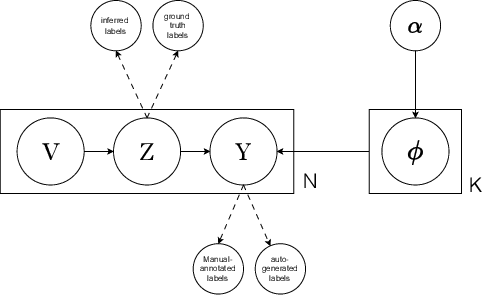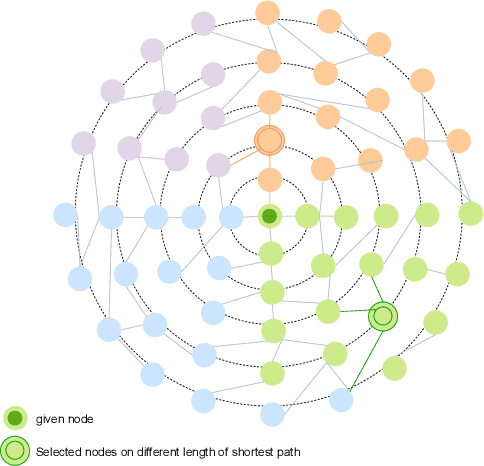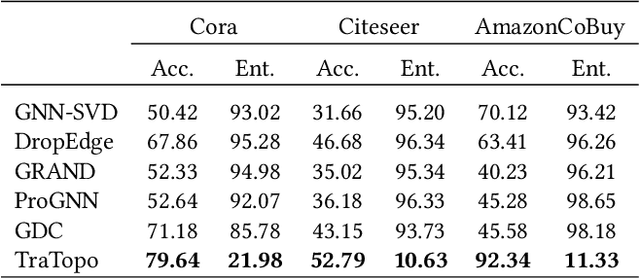Luyao Peng
Enhancing the Resilience of Graph Neural Networks to Topological Perturbations in Sparse Graphs
Jun 05, 2024



Abstract:Graph neural networks (GNNs) have been extensively employed in node classification. Nevertheless, recent studies indicate that GNNs are vulnerable to topological perturbations, such as adversarial attacks and edge disruptions. Considerable efforts have been devoted to mitigating these challenges. For example, pioneering Bayesian methodologies, including GraphSS and LlnDT, incorporate Bayesian label transitions and topology-based label sampling to strengthen the robustness of GNNs. However, GraphSS is hindered by slow convergence, while LlnDT faces challenges in sparse graphs. To overcome these limitations, we propose a novel label inference framework, TraTopo, which combines topology-driven label propagation, Bayesian label transitions, and link analysis via random walks. TraTopo significantly surpasses its predecessors on sparse graphs by utilizing random walk sampling, specifically targeting isolated nodes for link prediction, thus enhancing its effectiveness in topological sampling contexts. Additionally, TraTopo employs a shortest-path strategy to refine link prediction, thereby reducing predictive overhead and improving label inference accuracy. Empirical evaluations highlight TraTopo's superiority in node classification, significantly exceeding contemporary GCN models in accuracy.
 Add to Chrome
Add to Chrome Add to Firefox
Add to Firefox Add to Edge
Add to Edge